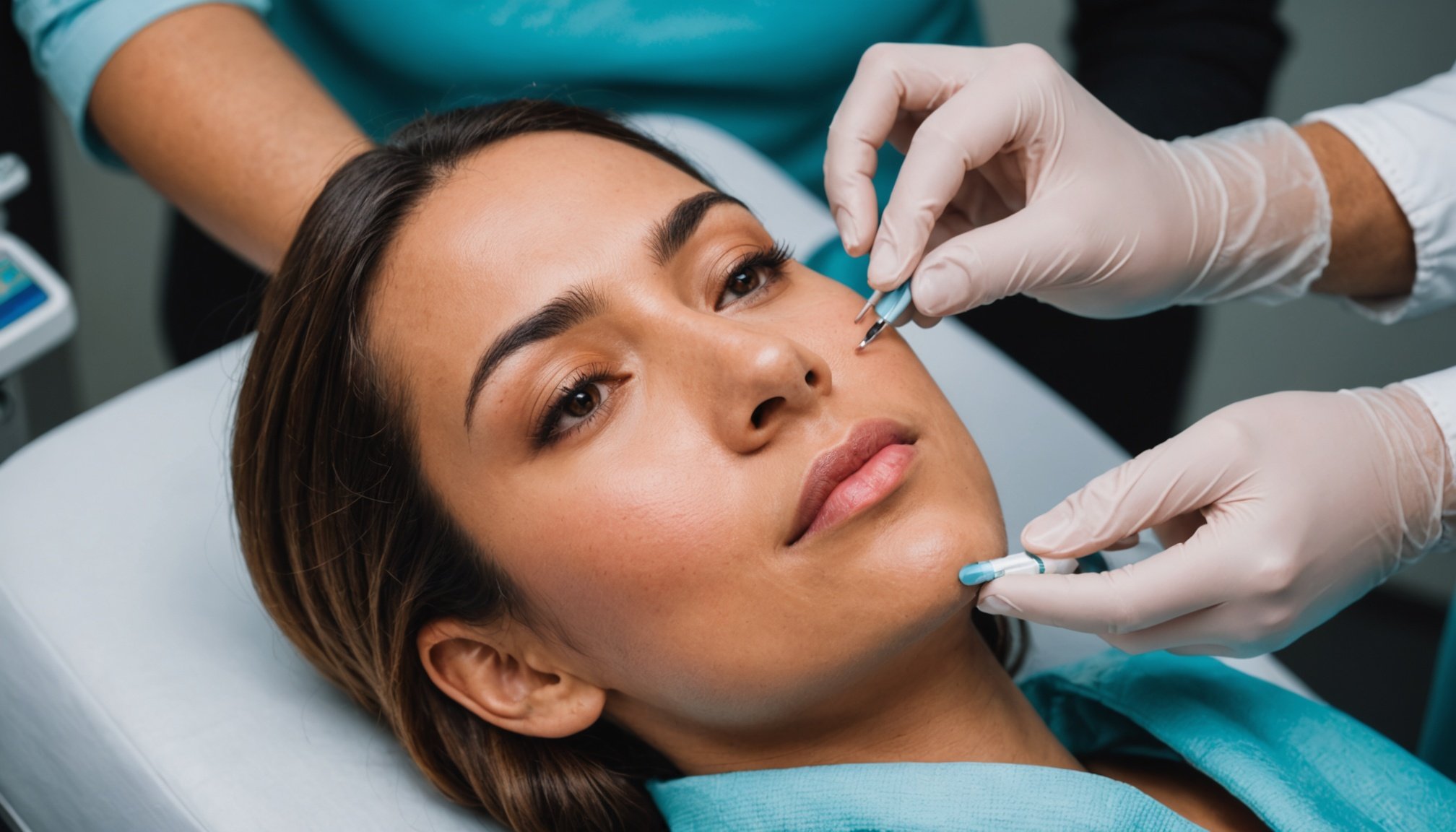Expecting mothers face unique challenges when considering cosmetic procedures, especially with the myriad of regulations in the UK. Safety should always take precedence, yet many feel overwhelmed by the information available. With recent changes in legal requirements and medical recommendations, understanding the landscape is essential for informed decisions. This guide aims to clarify these regulations, ensuring that expecting mothers can prioritize their well-being while also exploring cosmetic options safely. Empower yourself with knowledge and take charge of your choices.
Overview of Cosmetic Procedure Regulations in the UK
The UK cosmetic regulations have evolved significantly over the years, reflecting the growing demand and complexity of cosmetic procedures. Initially, the regulations were minimal, primarily focusing on basic safety standards. However, as the industry expanded, so did the need for more comprehensive oversight. This historical context is crucial in understanding the current landscape of cosmetic regulations in the UK.
Also to discover : Comprehensive Guide to Prenatal Iron Supplementation Guidelines in the UK
Today, several regulatory bodies play pivotal roles in ensuring the safety and efficacy of cosmetic procedures. The General Medical Council (GMC) and the Care Quality Commission (CQC) are among the key organisations responsible for overseeing practitioners and facilities. These bodies ensure that professionals are adequately trained and that procedures are conducted in safe environments, adhering to the UK cosmetic regulations.
Current legal standards for cosmetic procedures in the UK are stringent. Practitioners must obtain appropriate qualifications and certifications, and facilities must comply with health and safety regulations. Additionally, there is a strong emphasis on informed consent, requiring practitioners to provide patients with clear and comprehensive information about potential risks and outcomes. This regulatory framework aims to protect consumers and maintain high standards within the cosmetic industry.
Additional reading : Essential Guidelines for Safe Dental Care During Pregnancy in the UK: A Comprehensive Guide
Specific Regulations Impacting Pregnant Women
In the realm of cosmetic procedures for pregnant women, there are unique legal exemptions and considerations that must be taken into account. Health authorities strongly advise against undergoing non-essential cosmetic procedures during pregnancy, due to potential risks to both the mother and the unborn child. These risks can include adverse reactions to anaesthesia and stress on the body.
Pregnant women are often recommended to wait until after childbirth before pursuing cosmetic enhancements. This waiting period allows for a safer environment for both the mother and the baby. The body's physiological changes during pregnancy can also affect the outcome of procedures, making it prudent to delay them.
Guidelines from health authorities highlight the importance of consulting with healthcare professionals before considering any cosmetic procedures during pregnancy. It is essential for practitioners to provide clear, comprehensive information, ensuring that pregnant patients understand the potential implications. This approach aligns with the broader regulatory emphasis on informed consent and patient safety within the UK cosmetic industry.
Ultimately, these regulations aim to protect pregnant women by ensuring that any cosmetic procedures are conducted under safe conditions and with full awareness of potential risks.
Health Risks Associated with Cosmetic Procedures During Pregnancy
Navigating the world of cosmetic surgery during pregnancy requires careful consideration of potential pregnancy risks. Common risks linked to such procedures include increased susceptibility to infections and complications due to anesthesia. The body's altered state during pregnancy can exacerbate these risks, making cosmetic interventions particularly precarious.
The effects of anesthesia on pregnancy are a significant concern. Anesthesia can affect the developing fetus, potentially leading to adverse outcomes such as developmental issues. Medications used during cosmetic procedures may also cross the placental barrier, posing additional risks to the unborn child.
Moreover, the long-term implications for both mother and child are not fully understood. While immediate risks are often highlighted, the potential for lasting effects on the child's health and development warrants caution.
To mitigate these risks, it is crucial for expecting mothers to consult healthcare professionals before considering any cosmetic procedures. This ensures informed decision-making and prioritises the safety of both mother and child. Understanding these pregnancy risks is vital for maintaining the well-being of both parties during this critical period.
Expert Opinions on Cosmetic Procedures for Expecting Mothers
Navigating the landscape of cosmetic surgery during pregnancy can be daunting. Insights from experts, including dermatologists and obstetricians, are invaluable in understanding the complexities involved. These specialists emphasize the importance of individualized assessments, as each pregnancy presents unique challenges and considerations.
Dermatologists often caution against procedures that involve chemicals or invasive techniques, citing potential risks to both mother and child. Obstetricians echo this sentiment, highlighting the body's increased sensitivity during pregnancy. The consensus among these experts is clear: prioritizing safety is paramount.
When considering cosmetic surgery, expert advice underscores the need for thorough consultations. This ensures that any procedure aligns with the health status and needs of the expecting mother. Moreover, experts advise that non-essential procedures should ideally be postponed until after childbirth, when the body's physiological state has stabilized.
In summary, expert insights reveal a cautious approach towards cosmetic procedures during pregnancy. By emphasizing individualized assessments and prioritizing safety, healthcare professionals aim to protect both mother and child during this critical period. This expert advice is crucial for expecting mothers considering cosmetic enhancements, ensuring informed and safe decision-making.
Recommended Cosmetic Procedures for Pregnant Women
When considering safe cosmetic procedures during pregnancy, non-invasive options are generally recommended. These procedures are less likely to pose risks to the mother or the unborn child. Common non-invasive treatments include facials and superficial chemical peels, which focus on improving skin texture and appearance without penetrating deeply into the skin layers.
Certain procedures should be avoided during pregnancy due to potential health risks. These include treatments involving intense pulsed light (IPL) or laser therapies, as they may cause discomfort and are not thoroughly studied for safety in pregnant women. Additionally, procedures requiring general anesthesia or involving significant physical stress are discouraged.
For those seeking alternatives to cosmetic procedures during pregnancy, there are several options. Emphasizing a healthy skincare routine can help maintain skin health without the need for invasive treatments. Using gentle, pregnancy-safe products can address common skin concerns such as acne or pigmentation.
In summary, while some cosmetic procedures are safe during pregnancy, it is crucial to prioritize non-invasive options and avoid those that could pose risks. Consulting with healthcare professionals ensures that any chosen treatment aligns with the health and safety needs of both mother and child.
Resources for Expecting Mothers Considering Cosmetic Procedures
Expecting mothers pondering cosmetic surgery during pregnancy can find valuable support from various organizations. These entities offer guidance tailored to the unique circumstances of pregnancy, ensuring that mothers are well-informed about their options and potential risks.
Several organizations specialize in providing resources and support for pregnant women considering cosmetic procedures. These include health authorities and professional bodies that offer detailed guidance on safe practices and the latest research findings. Access to such information can empower mothers to make informed decisions.
Finding qualified practitioners is crucial for ensuring safe cosmetic procedures. Expecting mothers should seek professionals with experience in handling pregnancy-related cases. Recommendations from healthcare providers or verified professional directories can be invaluable in locating practitioners who prioritize safety and adhere to regulatory standards.
Accessing legal information and patient rights is essential for pregnant women considering cosmetic enhancements. Understanding the legal framework governing cosmetic procedures can help mothers protect their rights and ensure they receive appropriate care. Resources such as government websites and consumer protection agencies provide comprehensive information on patient rights and legal obligations of practitioners.
By utilizing these resources, expecting mothers can navigate the complexities of cosmetic procedures with confidence and clarity.
Case Studies: Experiences of Pregnant Women
Exploring cosmetic surgery experiences of pregnant women provides valuable insights into the real-life implications of such decisions. These stories highlight both the outcomes and the lessons learned, underscoring the importance of informed decision-making.
One case involved a woman who opted for a minor procedure, believing it would be safe during her pregnancy. Unfortunately, she experienced unexpected complications, which emphasized the need for thorough consultation with healthcare professionals. Her experience serves as a cautionary tale about the potential risks involved.
Another woman shared her positive experience after choosing to delay her cosmetic enhancement until after childbirth. She found that waiting allowed her body to recover naturally, leading to more satisfactory results. This highlights the benefits of patience and prioritizing health over immediate aesthetic desires.
These accounts illustrate the diverse outcomes of cosmetic surgery experiences during pregnancy. They stress the significance of comprehensive research and understanding the potential risks involved. By learning from these experiences, pregnant women can make more informed decisions, ensuring their safety and well-being as well as that of their unborn child. Prioritizing health and informed choices is crucial when considering cosmetic procedures during this sensitive period.
The Role of Medical Professionals in Guiding Decisions
Navigating cosmetic procedures during pregnancy necessitates careful medical guidance. Consulting with healthcare providers is paramount to ensure safety and informed decision-making. Medical professionals offer invaluable insights into the risks and benefits associated with cosmetic enhancements, particularly during pregnancy. Their expertise helps expecting mothers weigh potential outcomes and prioritize health.
When approaching conversations with doctors, it is crucial to be open and honest about any concerns or desires regarding cosmetic procedures. This transparency enables healthcare providers to tailor their advice and recommendations to the individual's specific circumstances. Discussing personal health history and any pregnancy-related changes is essential for a comprehensive assessment.
The documentation and informed consent process are critical components of medical guidance. Practitioners must provide clear, detailed information about the procedure, including potential risks and expected outcomes. This ensures that patients fully understand what they are consenting to. Informed consent is not just a formality; it is a vital step in safeguarding patient rights and promoting informed choices.
Ultimately, medical guidance serves as a cornerstone in the decision-making process for cosmetic procedures during pregnancy. By fostering open communication and prioritizing informed consent, healthcare professionals play a crucial role in ensuring the safety and well-being of both mother and child.
Legal Implications of Cosmetic Procedures During Pregnancy
Understanding the legal aspects of cosmetic surgery during pregnancy is crucial for expecting mothers. Patient rights and legal protections ensure that individuals are informed and safeguarded throughout the procedure. These rights include receiving comprehensive information about potential risks and outcomes, allowing for informed consent. This legal framework is designed to protect both the mother and unborn child during this sensitive period.
In cases of malpractice during cosmetic procedures, consequences can be severe. Practitioners found negligent may face legal action, including fines, suspension, or revocation of their medical license. Malpractice not only endangers patients but also undermines trust in the medical profession. Therefore, adherence to legal standards is paramount to uphold patient safety.
Reporting and accountability mechanisms are in place to address any legal issues arising from cosmetic procedures. Patients can report concerns to regulatory bodies such as the General Medical Council or Care Quality Commission. These organizations investigate complaints and ensure that practitioners meet legal and ethical standards. By understanding these legal aspects, expecting mothers can better navigate the complexities of cosmetic surgery during pregnancy, ensuring their rights are protected and any malpractice is appropriately addressed.
Future Trends in Cosmetic Regulations for Pregnant Women
As the realm of future cosmetic surgery regulations evolves, several potential changes could impact procedures for pregnant women. Legislators are increasingly focusing on enhancing safety measures, driven by ongoing research and technological advancements. These changes aim to ensure that cosmetic procedures align with the unique needs of expecting mothers.
Emerging technologies promise to revolutionize safety practices. Innovations such as minimally invasive techniques and improved anesthesia options are under exploration. These advances could significantly reduce risks associated with cosmetic procedures for pregnant women, offering safer alternatives that accommodate their specific health requirements.
Ongoing research plays a crucial role in shaping these future trends. Studies examining the effects of different procedures on pregnant women provide valuable insights that inform regulatory updates. This research not only identifies potential risks but also highlights areas where safety can be enhanced, guiding legislative changes.
As these trends unfold, they underscore the importance of staying informed about future cosmetic surgery regulations. Expecting mothers and healthcare professionals must remain vigilant, adapting to new guidelines and technologies that prioritize safety and well-being. This proactive approach ensures that cosmetic procedures continue to evolve in harmony with the needs of pregnant women.











